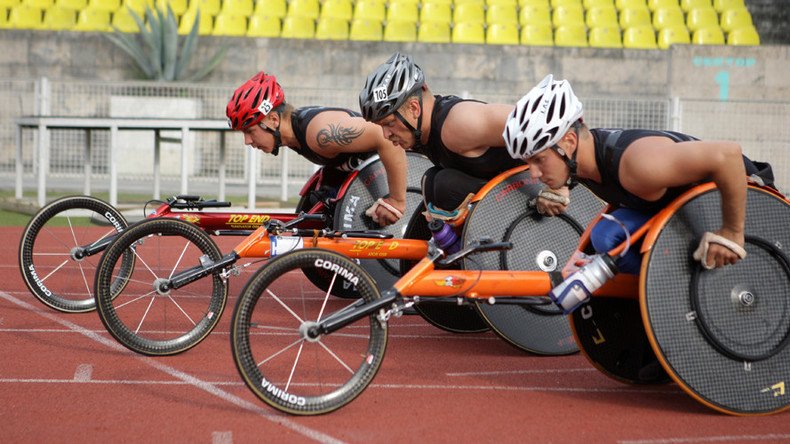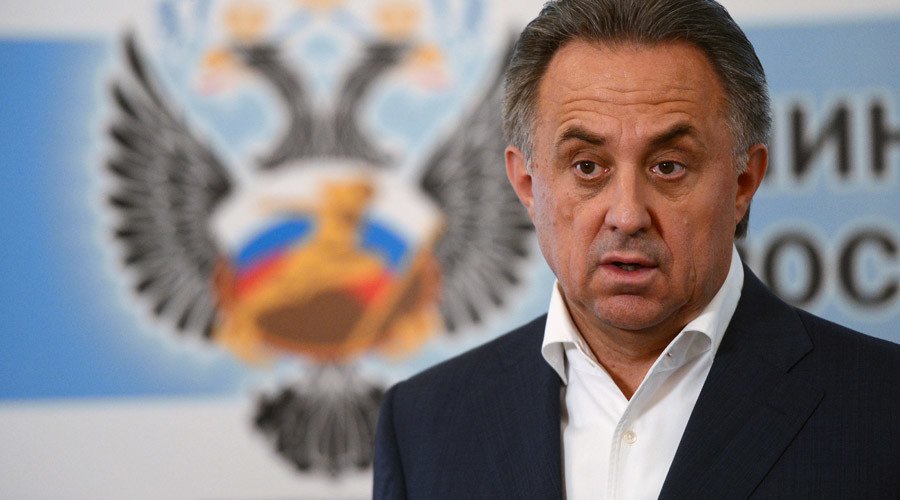Russian Paralympic team’s ban from Rio Games

The International Paralympic Committee (IPC) has confirmed a blanket ban on Russian disabled athletes from competing at the Rio Paralympics as recommended by World Anti-Doping Agency (WADA). Russia says it will appeal the decision.
08 August 2016
10:28 GMTForbidding Russian Paralympians from taking part in the Rio Games is a “grave human rights abuse,” Russian Paralympic Committee President Vladimir Lukin has stated.
“Most of the athletes denied participation so far are totally ‘clean.' Their samples have been tested in various conditions, using various parameters...,” Lukin told journalists, adding that foreign experts also took part in conducting the tests.
He added foreign experts also took part in the tests.
07 August 2016
23:05 GMTThe World Anti-Doping Agency has issued a statement, saying it “supports the decision taken by the IPC, which we believe is in the interest of clean athletes and the clean sport movement.”
“The IPC’s decision follows the WADA Executive Committee’s 18 July recommendation to the IPC that they consider declining entries of athletes by the Russian Paralympic Committee for Rio 2016 as a result of the McLaren Report,” the statement added.
WADA supports IPC decision which is in interest of clean athletes and clean sport movement https://t.co/NkuTDZCUIh#CleanSport@Paralympics
— WADA (@wada_ama) August 7, 2016- 20:39 GMT
Prominent human rights activist and the head of Russia's oldest human rights organization, the Moscow Helsinki Group, Lyudmila Alekseeva, has called Russia’s Paralympic ban “cruel and unjust.”
“I’m very disappointed,” Alekseeva told TASS. “The Paralympians deserve respect, empathy and admiration for the way they overcome terrible diseases. I wrote to the International Paralympic Committee urging for this issue to be resolved in some other way, but, unfortunately, the decision was taken [to ban Russia].”
- 20:34 GMT
The whole doping scandal has been initially politicized, Stephen Ebert, an American journalist and political commentator told RT, stressing that the blanket ban imposed by IPC against the whole Russian Paralympic team was a result of the fact that "the IPC is much more a subject to political pressure" and is "under way more pressure from [the West]."
- 20:32 GMT
"[Russia] does seem to be hit a lot harder than, for example, Kenya … that announced that athletes could actually buy their innocence, they could buy clean samples for £10,000 ($13,000). So it does seem very [much] directed against Russia and more than … unfair," Alan Moore, brand director of BOSSNA Professional Sports Nutrition and sports columnist, told RT.
- 20:31 GMT
The IPC decision violates the international anti-doping rules, Paul Green, a sports lawyer, told RT. “The World Anti-Doping code, if you look at it, only bans individuals. And it is the burden of the anti-doping organization to prove to the comfortable satisfaction of a hearing panel that somebody committed an anti-doping rules violation,” he said, adding that the IPC ban imposed against Russian athletes is very broad and thus legally vulnerable.
- 19:44 GMT
"The sort of 'collective responsibility' that is now being spoken by the international sports bodies about has only existed in the Middle Ages, or maybe during Nazi times, and I can't even understand how it has been allowed to become a legal concept again," Mikhail Terentiev, a former gold-winning Paralympian, and the Secretary General of Russia's Paralympic Committee has told RT.
- 18:58 GMT
Russia’s Olympic Committee President, Aleksandr Zhukov, has expressed regret that the International Paralympic Committee gave in to political pressure and banned the disabled Russian athletes from Rio.
“The IPC succumbed to political pressure. One can only regret that the IPC didn’t follow the example of the International Olympic Committee, which gave an opportunity to clean the Russian athletes to participate in the Olympic Games,” Zhukov said, as cited by Interfax.
- 18:32 GMT
Russia's sports minister Vitaly Mutko told RT that he was "disappointed but not surprised by the decision," which he says was anticipated by Russian officials after the Observer published a story revealing the ban on Saturday.
"There should have been some public procedures in place, members of the Russian Paralympic Committee should have been invited to a discussion, allowed to see the evidence against it, and had a chance to defend itself."

The official has said that the Russian side will now study the decision against it, and that the government would "provide all necessary aid" for launching an appeal, if it is merited.
Mutko also pointed out that the ban is being imposed on a country that spends a lot of resources on Paralympic sports, and Russia should be "thanked and not punished" for its dedication to a branch of athletic activity that has little commercial potential.
- 18:31 GMT
The ruling to ban the Russian Paralympic athletes goes against the core human rights principles upon which modern society is built, Maria Zakharova, Russia’s Foreign Ministry spokeswoman, said.
“The decision on non-admission of the Russian Paralympic team to the Paralympic Games stuns with its meanness and inhumanity. This is a betrayal of the highest human rights standards, which form the basis of the modern world,” Zakharova wrote on Facebook.













